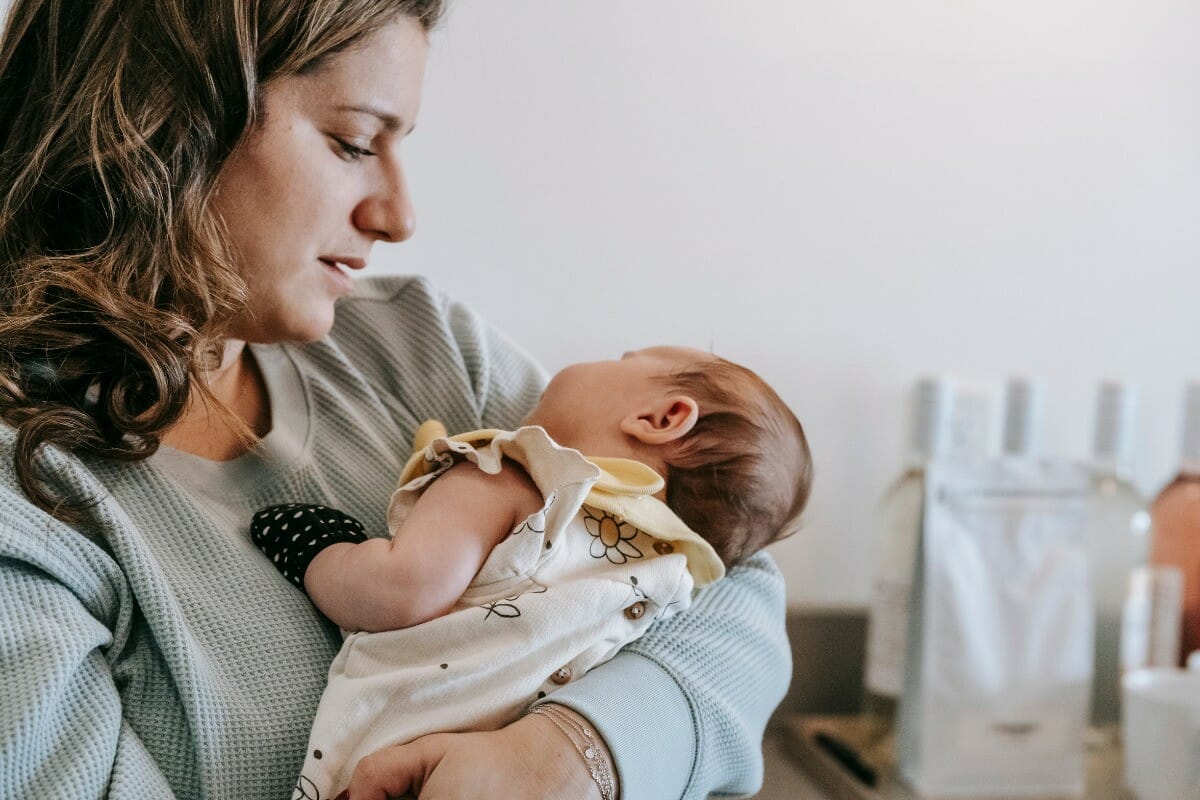
Building the Foundation: Infant Mental Health
-By David Lawrence Centers for Behavioral Health (DLC) Community Outreach Specialist Jessica Liria, M.S.
Societal and cultural stigmas surrounding mental health can produce negative thoughts and associations with the mere mention of the words. But why? The brain is a critical organ that is responsible for communicating and commanding the rest of the body—if the brain is unwell, overall health suffers. Establishing a strong foundation to manage and understand emotions, thoughts, and behaviors, as early in life as possible, will help to mitigate challenges and crisis situations.
The mental health of infants and toddlers has not had much attention in the past. However, over the last decade, the field of behavioral health has witnessed an increase in the need for intervention and treatment at much younger ages. This has led to a push in raising awareness across the nation to educate on the importance of social and emotional health in infancy and early childhood.
What is “Infant Mental Health” and why is it important?
This phrase refers to the development of emotional, social and cognitive skills in children from utero to three years of age. Much of this development is dependent on the caregiver. Anyone that plays a role in the life and upbringing of a child should know the stages of cognitive “leaps” and ways to teach children these critical, life-long skills. At birth, the average brain is about 25% of its adult brain size. Throughout the first year of life the brain grows rapidly, doubling in size. By age 3, the brain has reached 80% of its full growth and 90% by age 5. This is proof that early childhood is a critical time for learning, and we need to do all we can as caregivers to ensure the tools taught will help children thrive.
Developmental “leaps” and infancy skills
Physical milestones tend to be well understood and discussed, but the cognitive milestones an infant experiences are lesser known. These leaps occur when the brain goes through a massive change, quite similar to a physical “growth spurt.” The first developmental leap occurs around five weeks of age. During this time, an infant’s brain is starting to expand beyond the basic needs of feeding and sleeping. A five-week-old is starting to sharpen their senses and is more aware of what is going on around them. This can be overwhelming for the infant—so much new information to adjust to! Caregivers usually notice an obvious change in behavior and the baby may be more irritable or fussy than normal for a few days until their brain can adapt to the change. There are ten cognitive leaps that take place over the first two years of life, each with their own unique set of skills for the child to adapt to and strengthen.
Critical skills to be learned during the first three years include:
- Expressing emotions and learning to self-regulate to manage them appropriately
- Establishing relationships with people and developing a trusted, secure bond with caregivers
- Exploring societal interactions and gaining knowledge of family, community, culture and environment
“What can I do to build a strong foundation in infant mental health?”
Caregivers set the tone for social and emotional skills in these early years. How adults teach and interact with infants and toddlers generates their understanding of societal norms and generates their responses to emotional situations. By learning more about developmental leaps and utilizing techniques to build strong foundations in social and emotional wellness, caregivers can help young children thrive in the realm of mental health. Knowing where to seek additional support and resources to continue expanding upon this topic, and sharing what is learned, will also assist in creating happier, healthier communities.
In honor of Children’s Mental Health Awareness Week, David Lawrence Centers for Behavioral Health (DLC) is providing a free, 45-minute presentation that will feature an overview of the six developmental stages for children in their first three years and highlight the importance of strengthening infant mental health. Participants will learn about strategies to incorporate into their interactions with young children and receive tips to practice their own self-care and emotion management to lead by example. DLC will also feature nationally recognized resources available for caregivers to learn even more about this topic.
Join us for this valuable educational opportunity on Thursday, May 11th with two times to choose from: 8:30-9:15am or 1:00-1:45pm. To register, visit DLCenters.org/events. You will be provided with a link to join virtually.
Dec 02, 2022 | Mental Health, Blog



